„"From business valuations to fairness opinions, we ensure that middle-market companies are not traded below value."“

Corporate Finance

If the decision of a company sale or purchase, a merger or spin-off as well as equity or debt financing is pending, an adequate calculation of the company value, also and especially taking into account possible M&A scenarios, should be prepared in advance in the interest of all parties involved, for example in the form of a fairness opinion. The relevant stakeholders in the decision-making process, i.e. the shareholders, the management, financing banks if applicable, and other key participants, must have a valid basis for decision-making at all stages of the process. The partners of Saxenhammer are at your side on this path.
On the basis of careful consultation, we work with you to set the framework for the preparation of a comprehensive enterprise value analysis of your company or the target company, take over the referral to experts for the execution of an objective fairness opinion and reliably implement your interests in a secure negotiation.

Exact preparation
and planing
Before we start any calculations on the company value, we want and need to get to know your company or, in the buy-side process, the target company. To do this, we work our way deep into the company's history, including all figures, facts and success factors. This insight allows us to draw important conclusions from the information gathered and make forecasts for future growth.

Clean approach for maximum success
We are experts in the field of M&A. We therefore use various methods to calculate an objective company value, in order to have a meaningful valuation at hand during the actual negotiation, transparently showing both strengths and weaknesses. In this way, we guarantee appropriate purchase prices as well as the optimal positioning of your company.

Individual
consideration
Depending on your personal company situation, your business model, your starting position and your goals, we will guide you through the appropriate business valuation procedures and, moreover, through the entire M&A transaction process.
The initial target definition defines the purpose for which the company's value is to be determined. This can be a company purchase, a company sale, a merger or for tax purposes. In order to be able to carry out the business valuation, we collect any relevant information about the company in advance.
1Depending on the industry, size and type of company, we select the appropriate valuation method after review. To determine the value of the company, we use classic methods such as the comparative method (valuation using industry-specific multiples), the capitalized earnings value method and the DCF method.
2
By applying the appropriate valuation method, we determine the economic value of your company or the target company. In doing so, we take into account the general investment climate, the company’s individual future prospects and potential, as well as the market development of the Company. The main drivers are profit stability and growth. After the calculation, we record the results in a comprehensive report, which we send to you.
3The market never stands still. Therefore, the preparation of a business valuation is a snapshot. As a precautionary measure, we take care of reviewing and updating the company value prior to transaction processing and reflect the changes in the documentation.
4
Why commission a fairness opinion again if you have already had the company value calculated? Because the , as a reassurance of the company valuation, verifies the price determined and brings the necessary transparency to the transaction.
In a fairness opinion - the independent assessment by a third party - an estimate of the company's value is made, similar to the business valuation process. A fairness opinion is obtained if the financial fairness of the purchase or sale price or of the corporate transaction is disputed between the parties involved. The fairness opinion can be a written in an opinion-based manner on a business valuation, but also takes into account external factors, such as market conditions or the negotiating positions of the parties, when determining the value of the business.
Our partners at Saxenhammer consider it their duty of care to always provide you with the best advice so that you feel completely secure with your decision. Therefore, we recommend the execution of a fairness opinion for good corporate governance. The independent opinion on the determined company value does not function as a recommendation for action, but rather as an aid in decision-making, and to safeguard financial fairness in the event of subsequent disputes.
In the field of mergers and acquisitions, the sale and purchase of companies form the core of our expertise. The implementation can take place in a variety of ways: Share deal, asset deal, buy-out, carve-out, leveraged buy-out, merger, joint venture, recapitalization, spin-off, squeeze-out. Each type of transaction requires specialized expertise and often the ability to act quickly. We have built up this necessary expertise in over 300 successfully completed transactions.
Mergers and acquisitions thus offer both opportunities and challenges. As professional partners, our M&A advisors support mid-market companies and entrepreneurs with first-class M&A and corporate finance services. Through targeted advice and a differentiated strategy, we increase the probability of success of the M&A process and minimize risks.

Even if we are able to identify interesting candidates in the course of a targeted search for potential takeover targets, the financing of the transaction always remains a critical point in the process. Here, we are happy to provide our extensive expertise to help you structure the acquisition financing.
In the area of corporate finance, we cover a wide range of corporate finance issues. This includes planning and arranging financial resources (equity and debt). Specifically, it involves maintaining the company's liquidity and securing capital for growth and expansion. Our support in the area of corporate finance is comprehensive and ranges from the discussion and development of an optimal financing strategy to its successful implementation.

Because in the case of a company purchase, a company sale or a merger of companies, the most diverse perspectives of the respective parties involved come together. While sellers use past successes as a reference, the focus of a buyer tends to be more on future growth and expected earnings, and the strategic prospects of the company. The different methods used to calculate the value of the company should take into account the interests of both parties, so that at the end of the transaction a result is achieved with which everyone is satisfied.
Your M&A advisors at Saxenhammer will guide you through all M&A processes, such as company sales, and Mergers and Acquisitions, with a well-founded and in each case targeted method of company valuation.
The capitalized earnings method (also EBIT method (EBIT for "earnings before interest and taxes")) is one of the most common methods among the various methods of calculating company value. The capitalized earnings method according to IDW S1 is based on the IDW standard, i.e. the specifications of the Institut der Wirtschaftsprüfer in Deutschland e. V. (Institute of Public Auditors in Germany).
In this method, future profits are calculated on the basis of a budgeted profit and loss account, before these profits are discounted up to a specified valuation date. According to the capitalized earnings method according to IDW S1, the goodwill is not derived from the current situation of the company, but by means of the future potentials (the profits generated in the future). In this procedure, the central question is how quickly the purchase price can be offset by future profits. In this context, first the average profit of the last years is calculated, which serves as a starting point for the planning of future earnings and cash flows. Subsequently, the expected surpluses or profits are discounted using the capitalization rate to determine the enterprise value.
The determination of the capitalized earnings value according to IDW S1 is thus based on the principle of future-oriented valuation. By not only considering past values, it is ensured for the buyer that the purchase price does not exceed the expected profits.
The net asset value method determines the amount that would have to be spent to reproduce an established company at the current time. The resulting amount is referred to as the net asset value and is practically equivalent to the replacement value. Included in the net asset value are tangible assets such as inventories, the vehicle fleet or machinery. Intangible assets and assets of the net asset value include patents and software, as well as the customer base and supplier relationships. The reproduction costs for intangible assets are always only an estimate. Once the valuation of the intangible and tangible assets is complete, a company comparison must be undertaken, in order to obtain a realistic estimate of the company's value. On the basis of all the values determined and with the help of the net asset value, we can then calculate a range for the enterprise value.
It is important to note that the net asset value method is only one aspect of business valuation and does not take into account all relevant factors. It is therefore advisable to always combine the net asset value method with other methods such as the capitalized earnings method or the discounted cash flow method in order to obtain a comprehensive company valuation.
The mean value method is a method of business valuation based on the assumption that the enterprise value corresponds proportionally to the profits or sales of a company. There are two variants of the mean value method:
1. Multiplier method: A multiplier is applied to profit or sales to calculate enterprise value. This multiplier is usually determined on the basis of comparative data from the industry and market analyses.
2. Average method: The average of the last years' profits or sales serves as the basis for the valuation. The number of years included in the calculation depends on the industry and the stability of the company.
The average method can be used for companies that are already established and have stable earnings. However, it is important to note that it also has disadvantages, such as neglecting other factors that may affect the value of the company, such as risk or the potential for future growth. Therefore, the mean value method should always be used in combination with other methods such as the capitalized earnings value method or the discounted cash flow method to obtain a comprehensive valuation.
The market value method is a business valuation method based on the principle of supply and demand. It assumes that the value of a company is determined by the price a buyer would be willing to pay if the company were for sale on the open market.
In general, the market value method is used for listed companies, as here the market prices of the shares are available due to the constant transactions on the stock exchange. The market value is determined by multiplying the number of shares issued by the current market price per share.
However, it can also be applied to non-listed companies by using similar companies or industry data and determining a comparative value.
The market value method has the advantage that it reflects current market conditions and the actual interest of potential buyers. However, it can be difficult to find comparative data for unlisted companies, which limits the application of the valuation method. In addition, this valuation method alone neglects key influencing factors relevant to goodwill, such as risk and potential for future growth. For this reason, it is recommended that the fair value method is always used in combination with other valuation methods such as the capitalized earnings value method or the discounted cash flow method in order to achieve a complete valuation.
Like the income capitalization approach, the discounted cash flow (DCF) method is one of the forward-looking valuation methods. In this method, the focus is not on the current enterprise value, but on the future development and the potential value due to the discounting of income generated in the future. For this purpose, a valuation date is determined as of which all cash flows of the respective company are discounted. With the aid of discounting, this analysis (using the entity or equity method) of future earnings and developments provides a realistic picture of a company's current situation.
Although both the DCF method and the capitalized earnings method are future valuation methods, they are not based on the same principle. While the DCF approach includes all cash flows (profits, expenses and taxes), the income approach is based only on future earnings.
